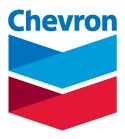Have you held or are you currently holding a job/internship position and wondering how to translate your experience into learning outcomes for professional documents and job interviews? If the complexities of career development are weighing you down, then this blog post can help simplify your experience into tangible learning outcomes.
Below is an example of how to turn an experience into a well-developed resume bullet-point:
Remember, the goal is to identify your experience and showcase the hard work you have put into your job/internship in a way it relates to your future employer. You professional documents are ever changing and will continue to improve with time and effort. I challenge you to leverage your past and future experiences and think about how you can cross-reference them into learning outcomes for career development.
Use the following links to enhance your resume For more information on how to continue to develop your learning outcomes for career development, visit the Career Center website for additional resources.
Written by Destinee Vargas, Graduate Assistant for the College of Agriculture & Life Sciences at the Texas A&M Career Center
1. Evaluate your experience
In order to adequately evaluate your experience you must first identify your day-to-day actions and think about the transferable skills you’ve gained or used. The goal is to properly articulate your skills in relation to the industry of which you are seeking employment. For example, hands on experiences such as internships and work studies allow you to learn skills that can be easily translated into well-developed resume bullets or interview talking points. However, if you have not been able to participate in hands on experiences, then conduct research on the topics by watching informative videos (LinkedIn Learning) to familiarize yourself with key verbiage and processes associated with your industry of interest.2. Seek out your professional network
Another important aspect to career development is building your personal and professional network. These networks can serve as valuable resources when applying to jobs in the future. There are many ways to build your network; for example, engaging in informational interviews or meetings with industry professionals to understand the skills you are expected to have are great ways to meet people (whether in-person or virtually). Another way to build your network is to browse current and former student profiles on aggienetwork.com and linkedin.com to connect with business and industry professionals that have common career goals and interests. These resources make building and maintaining these networks easier.3. Implement Skills and Experiences into your Documents
Once you’ve identified your level of experience and understand what employers/industry experts are looking for, you can begin to develop your professional documents such as a resume. Resumes consist of bullet points to highlight your relevant experience. Each bullet will begin with an action verb followed by your accomplishment, details about what did to achieve your goal, and a measurable outcome. There are some positions that may be difficult to accurately measure your work; however, you can find key points from your experience to help differentiate you from your peers.Below is an example of how to turn an experience into a well-developed resume bullet-point:
- Beginner Level Explanation
- Led a team to study the branding and marketing strategies of agricultural commodities and analyzed the pricing strategies of agricultural commodities in comparison to international competitors.
- This bullet point lacks measurable content and does not provide an example of how the student studied marketing strategies or what tools were used to analyze agricultural commodities
- Intermediate Level Explanation
- Led a cross-functional 5-member team to develop and implement global advertising strategy for $10 million agricultural commodities.
- This bullet point lacks well-developed content and does not provide an example of tangible skills learned while engaged in this position. This bullet also does not provide the resulting effect of the student’s efforts.
- Advanced Level Explanation
- Led cross-functional 5-member team to develop and implement global advertising strategy for $10 million agricultural commodities resulting in a 11-point increase in brand recall, 5% improvement in net promoter score, and a 10% contribution to yearly sales improvements.
- The additional percentages provided makes this explanation more powerful and reinforces the students learning outcomes. It also offers measurable data and gives the reader background information about improvements the student made while engaged in this position.
Remember, the goal is to identify your experience and showcase the hard work you have put into your job/internship in a way it relates to your future employer. You professional documents are ever changing and will continue to improve with time and effort. I challenge you to leverage your past and future experiences and think about how you can cross-reference them into learning outcomes for career development.
Use the following links to enhance your resume For more information on how to continue to develop your learning outcomes for career development, visit the Career Center website for additional resources.
Written by Destinee Vargas, Graduate Assistant for the College of Agriculture & Life Sciences at the Texas A&M Career Center
